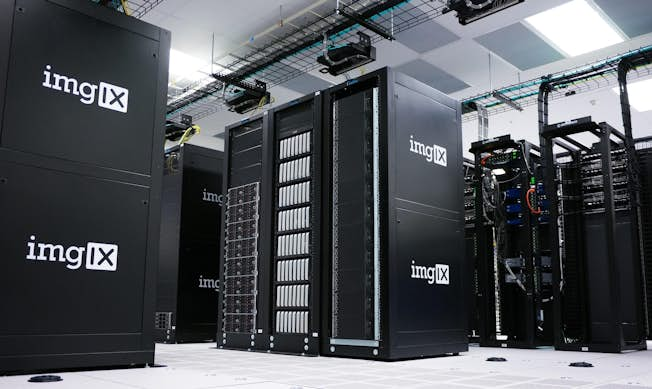Apr 12, 2019
8 Digital Skills You Need to Survive the Rise of AI
The robots are here. For some people, the rise of artificial intelligence (AI) and machine learning fills them with excitement, as their mind races with the phenomenal possibilities that the technologies present for business. For other people, the rise of AI is something to fear.
They worry about their job security and question whether they possess the digital skills to keep the pace with modern marketing practices in the digital age.
Without a doubt, some jobs will be usurped, particularly in number-heavy fields like accounting, payroll, and statistics. That’s unless you’re able to count faster than a super-computer. Of course, that’s not a skill that too many people possess, which begs the question:
Just what digital skills are essential in the AI age?
In this article, we’ll show marketers how to strengthen their skill-set so that they can make themselves indispensable in the digital age.

8 Essential Skills to Master in the AI Age
Salesforce recently reported that more than 60% of hiring managers believe AI will change how people work in the next five years. In fact, we already have AI in the hiring process. That’s right, not only might robots take your job, they’ll also have the power to give you one!
While that may sound like an oncoming nightmare for some, the truth is that AI isn’t going to wipe out all need for humans in the workforce. The digital future could well be one where machines and humans work together in perfect harmony, complementing each other’s strengths.
So, how can you stake your place?
Here are 8 and essential skills – digital and soft skills – that will help you survive the rise of AI.
1. Data Analysis
You may think data analysts are first up on the chopping block. But you’d be wrong - data analysis is one of the digital skills you should look to add to your arsenal.
Data holds immense potential, and has even been called ‘the new oil’. Projections from Forbes claim that market revenue related to Big Data will surpass $100 billion by the year 2027.
However, just like oil, data must be drilled first. If there are no humans around to tap into its potential, then data is practically useless. Proper data analysis is the only way for a business to understand consumer data, and that’s how they can gain actionable insights from it.
This is the era of data-driven marketing, and more companies are jumping on the train every day. While AI and machine learning can gather the data and organize it, companies will still need people with smart data analysis skills to actually put it to good use.
2. Coding
Machine learning is still in its infancy, but many veteran software engineers are making the switch, and dedicated degrees and courses in data science, machine learning, and AI are popping up all over the globe.
And here’s the thing:
It is generally accepted that there is a digital skills shortage, although a recent Deloitte report suggest the gap may be closing.
Nevertheless, while some people are panicking about losing their job because of the rise of AI, they really need to wake up to see that the perceived harbinger of doom is actually creating thousands of jobs in other areas.
Coding jobs are set to soar in the years ahead, and it’s not just for boys either. Kimberly Bryant’s company, Black Girls Code (mentioned in our recent article on 5 women leaders) is just one initiative that is giving the career path mass appeal. If you can code, you will never be stuck for work in the digital age.
3. Content Creation
Is content still king? Can robots write good copy yet?
Actually, yes they can (to a degree). The New York Times recently discussed ‘The Robot Reporter’, showing how automated tech is already more than capable of bashing out a few thousand words while you’re busy chatting at the coffee machine.
So, what’s a hard-working writer to do in the face of such competition?
Well, smart content marketers typically have more than one feather in their cap. They aren’t usually just a writer. They aren’t only a social media marketer. No, the modern content marketer is someone who has journeyed through several freelance roles, acquiring a wealth of knowledge and skills along the way.
If you’re agile, by the time AI tightens its grip on the world, you will have an array of content capabilities, such as:
- Blog writing
- Sales writing
- Social media marketing
- Email marketing
- Image creation
- Video production
The more you can do, the more versatile and valuable you will be.
Security
One of the best digital skills to nurture now is in the area of cybersecurity. As more companies migrate to the cloud, the global value of online data becomes inconceivable. That being said, try wrapping your mind around these projections:
- The cloud computing market is going to be worth over $400 billion by 2020. (IT Proportal)
- By the year 2022, over $1.3 trillion in IT spending will be affected by the cloud. (Forbes)
- 93% of companies think the cloud will be used for half of all enterprise transactions in the years ahead. (Gartner)
For businesses, that’s incredible potential. For people with bad intentions and elite hacking skills, that’s an incredible opportunity to exploit. Google, Facebook, and Quora were only some of those subject to major data breaches in 2018, which compromised their coffers and the personal details of millions of people.
Therefore, it makes sense that cybersecurity experts are in high demand now. Aside from fending off cybercriminals, security experts may also be needed to safeguard company assets and personal data from technology itself.
A case in point: the founder of QuadrigaCX died suddenly recently, taking the company recovery passwords to his grave. This promptly transformed his cryptocurrency exchange into a quasi-Shakespearean crypt as it locked investors out of $190 million, seemingly forever.
Hopefully, there will be no ‘I, Robot-esque’ type of revolt, but it’s clear that we will need security experts to protect us from the computers too.

5. Ethics
As the untrusting protagonist in the aforementioned "I, Robot", Will Smith’s character asserted that computers don’t have a conscience or heart, they’re “just lights and clockwork.” He was right. They do whatever they have been programmed to do.
We are living in an age where brand integrity and corporate social responsibility are becoming integral concerns for companies in all industries. Today, many people are becoming ever more conscious about our world, our environment, and how we treat one another. As a result, businesses must prove they have a social conscience, and they are a trustworthy, reputable brand.
This movement has led to calls for AI technology to be closely monitored, with new guidelines from the EU stating that AI systems must be “accountable, explainable, and unbiased”.
Companies should ensure their systems are secure, private, and non-discriminatory. While it’s great if you can use AI to enhance your digital skills, you must also know where to draw the line. Knowing when to use emotional intelligence and empathy is crucial.
6. Adaptability
One of the most basic requirements of any company in the current digital landscape is to be agile. You need to be open to change. Technology is advancing at a rapid pace, and only the most agile, reactive companies will thrive.
Just as companies must adapt, so too must individual digital marketers. There is simply no place for stubbornness today. If you stick your heels in and refuse to embrace the change, you could be the next victim of Digital Darwinism.
7. Communication
Here’s a common misconception:
AI and machine learning are going to kill the ‘personal touch’. This is a fallacy. The reality is that communication will be more crucial than before during the rise of AI. Research from Harvard Business Review explored the inner workings of 1,500 companies that are currently using AI. HBR found that the top-performers were those companies that brought humans and machines together, enhancing performance through collaborative intelligence.
Imagine your company is going to start using an AI chatbot to enhance customer service. To maintain the human touch, you must still be available to talk to people. Chatbots on a live chat service won’t always have the answer, and sometimes your customer will want to speak to a real human. If your business doesn’t have that option, you risk creating a barrier between customers and your business.
Gartner predicts that as much as 85% of all customer service interactions will be conducted by chatbots by 2020. However, we shouldn’t expect to disappear completely just yet - AI takes time to learn and reach a high level of efficacy, so people will still be needed in customer service.
AI is revolutionary for marketers, but it still has limitations. It can’t replicate a genuine human response with emotion and empathy for a customer’s specific situation…yet.
8. Leadership
AI may be better at doing certain tasks but it can’t do every aspect of somebody’s job. It doesn’t make sense to give people tasks that a computer can do better, and vice-versa. As AI is adopted by more companies, existing job roles will change, so that people are allocated new tasks in place of the mundane duties that a computer can do.
China aims to be the world leader in AI by the year 2030 and is well on its way there, while the US is investing heavily to keep up. Ultimately, companies will need strong digital leaders to drive change within an organization.
The evolution in job duties can create more time for creative thinking and strategy. If your company is really going to leverage this potential, you must have an adaptable leader with vision who can empower employees. If you are good at time management and understand how to delegate tasks in an efficient manner, you can help companies maximize their use of AI and help humans to become more productive.
It’s Better to Embrace AI than to Fight It
While the debate continues on whether the rise of AI will take or create jobs, time marches on and the digital landscape continues to shift.
There is no doubt that artificial intelligence systems will be at the core of global industry and business in the future, so why waste any more time worrying about the inevitable? Instead, why not do something about it?
AI cannot yet do everything, and it may be decades before it reaches its full potential. Even then, there will still be a need for skilled people to work alongside computers and robots.
In the meantime, marketers must push themselves to expand their knowledge and learn new digital skills. From coding and data analysis to better management and leadership, there is a host of ways to turn yourself into a digital leader.
These are the people the world will need in the future. Right now is the best time to start your own personal digital transformation.
After all, the robots won’t stop learning. Why should you?
Upgrade to Power Membership to continue
your access to thousands of articles, toolkits, podcasts, lessons and much much more.
Become a Power Member- Login
- View Courses
- - - -
- Courses
- Resources
- - - -
- My Account
- Change Password
- Logout





